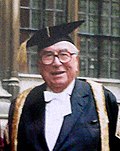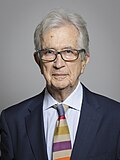| Leader of the Liberal Democrats in the House of Lords | |
|---|---|
| Inaugural holder | The Lord Jenkins of Hillhead |
| Formation | 3 March 1988 |
The Liberal Democrat peers elect the Leader of the Liberal Democrats in the House of Lords . Until the election of Lord Wallace of Tankerness in October 2013, all previous leaders had been members of the Labour Party who left to form the Social Democratic Party in 1981 before merging with the Liberal Party in 1988.







